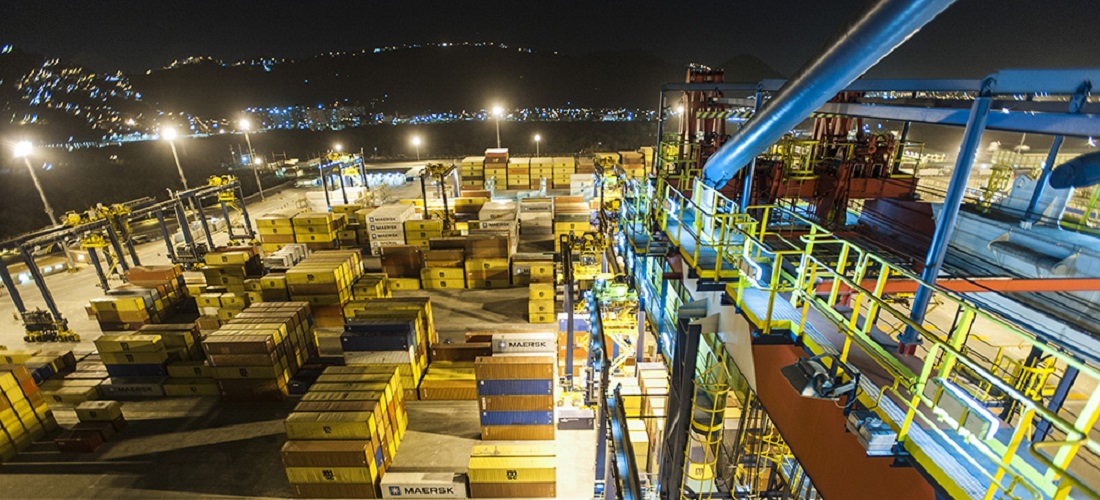
Decreased competition in maritime transport worries CNI
Feb, 24, 2021 Posted by Ruth HollardWeek 202108
A recent study by CNI (the national industry confederation) found that the number of shipping companies that transport containers in Brazil dropped from 23 in 2015 to 14 in 2019. Of these remaining 14 companies, 8 are large companies, gathered in three global alliances which share operations.
According to CNI, the result of the merger is decreased competition, which increases the pressure on freight and generates arbitrariness in the provision of the service – such as the creation of fees, the cancellation of vessel calls without notice, etc., according to Matheus Braga de Castro, an analyst at the entity. Shipping companies refute the accusations. Centronave (National Center for Transatlantic Navigation), which represents the sector, said in a note that the concentration did not reduce competition, and that “there are many‘ players ’that compete freely in this market”. The association says that the consolidation process affects not only shipping but also “countless branches of the economy”, including on the side of the maritime transport service providers, such as the automotive, pharmaceutical, food, and large meatpacking industries – or that is, the bargaining power of users in various segments has also increased. Centronave also points out that “it does not carry out commercial activities with its associates” and that it did not have access to the CNI study and, therefore, cannot answer in more detail.
One of the industry’s complaints to shipping companies is that in recent years, the number of services operated in Brazilian ports has fallen sharply. As a result, users have fewer travel options and stops to transport their cargo to its final destination. In 2015, container carriers operated 94 services a week in Brazil. By the end of 2019, the number had dropped to 66, the study points out.
For CNI, another great concern is the increasing verticalization of global logistics chains, as shipping groups increasingly invest in ports and land transport, says Castro. In Brazil, there are some examples of port terminals controlled by shipping groups. APM Terminals (from Maersk) controls assets in Pecém (CE), Itajaí (SC), and Itapoá (PR), and Terminal Investment Limited (from MSC) operates in Navegantes (SC) and Rio de Janeiro. The two companies also form a joint venture in the Port of Santos (SP), Brasil Terminal Portuário (BTP).
The industry is beginning the creation of an entity to prevent abuses, says Castro, of CNI. “We are in initial meetings to form a national council for users of container transport. It is a strategy to expand the bargaining power. ” Concerning this point, Centronave says that many of these port assets are “greenfield investments” [built from scratch] that other investors were not interested in developing “. According to the entity, the terminals are one of the “most important operational links in the chain” and therefore “they need to be extremely efficient to guarantee fluidity”.
The association also points out that most terminal operators in Brazil and worldwide are independent. CNI’s questions come to light amid skyrocketing freight prices and problems with service provision, such as delays and cancellations. In January, freight on the Santos-Shanghai route reached a record level of US $ 10,000 per TEU. This increase has occurred around the world, mainly on routes departing from China, which has caused shipping companies to be questioned by regulatory authorities in Europe, the United States, and China. CNI itself, however, does not see arbitrariness in the recent rise in freight. Castro believes that the cause of this surge in recent months is from logistical problems stemming from the pandemic. “It is an abnormal moment, and the sum of the factors speak louder than structural aspects [market concentration].” He says the concern precedes recent market disturbances.
Concerning the questions that have been made in other countries in the sector, Centronave says that it does not believe in any type of intervention in Brazil and “expects market freedom to prevail”. The entity points out that the sector provides the country with “a whole logistics infrastructure” without receiving any fiscal incentives or public resources.
Source: Valor Econômico
Related Post
-
Ports and Terminals
Sep, 06, 2021
0
ANTAQ registers 8.44% YTD increase in port handling
-
Grains
Oct, 02, 2023
0
Argentina’s grain export revenue plunges 75% year-on-year in September, chamber says
-
Other Logistics
Nov, 10, 2023
0
Brazil and Uruguay strengthen partnerships in infrastructure works
-
Shipping
May, 30, 2022
0
Carriers now have many containers but nowhere to ship them



